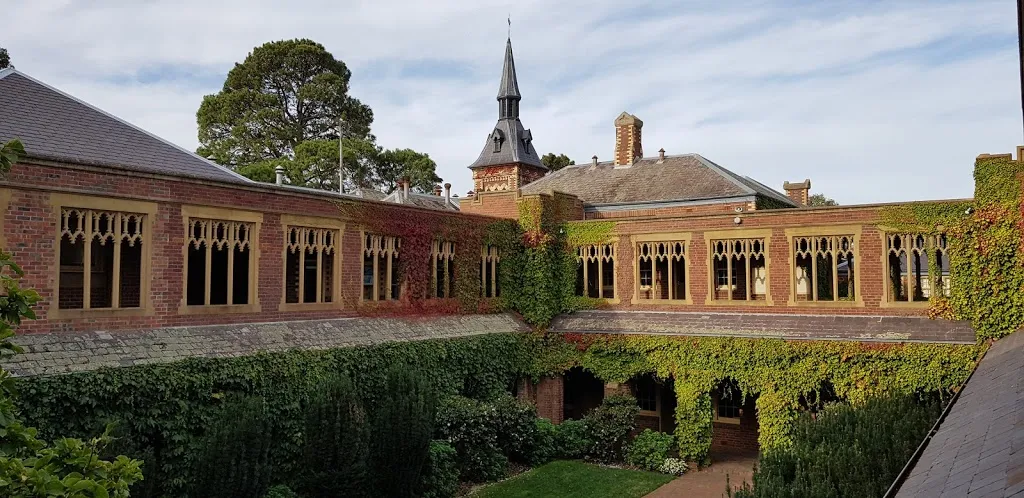One of the wonderful things about this pandemic is that it shows us what is possible. In response to climate change, they said it was impossible to ground planes - and yet, here it is, done. Sure, we're inconvenienced, but it's possible. We have problem solved many things, particularly businesses - it's either go bust or adapt. I do hope for a new world emerging from this - there's no real need to revert back to the way things were in all aspects of our lives.
As an educator, my first concern was for the kids. I'm not going to write about those who have suffered - that's a topic for another day. What I want to focus on is how things might change for the better. I've taken this year off because teaching had worn away at my edges, and I needed the space to breath. Ironic, given it's a year of reduced and limited 'space', with lockdowns and border controls! It's odd, because I know I am missing out on a lot of professional development especially in the realms of technology, and I feel I'll have to be fully briefed next January when I return.
My teacher friends tell me positives - they've got to know the kids really well, being zoomed into their bedrooms, sitting rooms and kitchens. Many have loved having the extra time with their families, for the first time really getting to know their parents because they've not been at work all the time with the stresses that brings. Primary school teachers tell me their attention span is worse than usual, necessitating lots of micro lessons and afternoon play versus harder academic subjects. Most say the students have enjoyed being back at school, primarily for their social groups but also because of the routine school brings. Whilst your experience at school may have sucked, many actually enjoy it. Secondary schools are also worried about their results, missing out on direct teaching that might help improvement their grades. In Messenger, I've been in touch with a few former students who say they really enjoyed online learning - it cut out the noise of the classroom, and the drama of some social groups they'd rather not be part of.
Schooling isn't a one size fits all approach. Some kids loved this lockdown for home schooling, some hated it. Some are more self directed, others aren't. This is just part of what being a good teacher is - being able to differentiate, and pitch a class to various learning needs. It's bloody hard work, and if you think you're doing a good job, some parent will come along and tell you otherwise, or a kid will complain when you put a foot wrong according to their criteria. People seem to forget that you're the one that's been trained in education.
And it doesn't matter what you believe as an educator - you're bound by state and national laws.
I have a huge problem with how students are assessed, but I'm teaching them to do well according to a score. In Australia, it's called ATAR - your ATAR score determines what university or course you'll get into upon leaving. Want to do medicine? You better make sure your ATAR is 99 (in most cases). Even when my son Jarrah went through school (he did an International Bacchaelaureate, a demanding two year course) I was worried all he was focussing on was his grade. Five years later, he would give the same advice to his younger cousin - study hard to keep your options open. The international students I teach are hell bent on good grades because it's so competitive in China. An education in the West gives them that edge - and they've got pressure from home to go into careers of their parents choosing.
Yet this wasn't my pathway - having a tough time in Year 12, my marks dropped drastically (I simply didn't care anymore about school, and didn't put in half the effort I could have, skipping school alot, though I did okay considering) and I went in and did my Arts degree as a mature age student in my early 20's, taking 6 years to complete a 3 year degree (I travelled, and had a kid) before doing a one year Dip Ed and becoming a teacher. I recognise the world has changed since then, but the 'world has changed' argument also works on the flip too - should we still be educating kids in the same way we have for 150 years? That's ludicrous. If the world's changed so much, why is the focus still marks and grades and exams? Why are we fitting kids into the same holes, pushing them into particular slots? I felt so much pressure to get a career and perform it almost paralysed me - and it paralysed Jarrah too, even though it wasn't me doing it, it was the school system.
As he said, no one gave him any choice but science or politics - he was good at History, Literature, Maths - no one encouraged him to follow his passion (apart from his mother, but who listens to mothers at that age?) - and of course, the schools like to hold ATAR badges up high, to say 'look at us, study here, we're the best educator'. If you tell kids there are options, are they going to listen to you telling you to pull a high study score for English? Why write essays if you can follow your dream of being a diesel mechanic?
I've had chats with people who work at universities who lament schools and universities aren't talking enough. Universities are beginning to value a whole heap of interpersonal skills that indicate you might do well at further education, many of them beginning to see that an ATAR ain't worth diddly if you don't have resilience, perseverance, passion and enthusiasm, and above all curiousity and a love of learning. That's an incredibly rare trait - I see it in about 1 in 500 kids I teach. Seriously. We've forgotten to teach kids to be instrinsically motivated - to care about learning for learnings sake. That's teachable, believe it or not. The joy of learning trumps everything - if you teach your kid to enjoy the struggle of learning, then you've done well. It doesn't even matter if they fail. Really. But that's the subject of another post - this one's getting a little long.
I get so angry about people who set the education system we have. Many have not been in the classroom in years. There's other ways we can do things. A few years ago we visited the Green School in Bali and I felt so enthused about how they approached education. Once they figured out the child's passion, the child would set the curriculum. Say you loved dolphins. All your subjects could revolve around that topic one year - you'd write about them (English/Journalism/Creative Writing/Argumenative Writing), find out about habitat and physiology (Science, Biology etc), create (media) - many 'core' subjects can revolve off a subject kids are passionate about. The following year, they could choose a different topic. Dolphin kids might totally change their minds and choose trains - or they might still focus on the marine. By leaving year, they know what they want to do, and are appropriately 'schooled' to achieve that goal. Our question, of course, was about university. The Green School's answer was that many universities were really open to accepting students who were suitably schooled with the skills to approach learning, rather than the content itself, and that they'd set them up on programs such as volunteering that would give them the 'credits' to enter university degrees later on.
I recognise that some of us might be able to study well at an Open University. Some universities offer degrees in all kinds of things, just without the certificate. If you're self motivated, you can easily complete one of those degrees - and that's pretty telling about another flaw in the system. We place far too much value on the certificate, rather than proven skills. If I was an employer, I'd have a whole other set of criteria to assess a potential employeee. What, you completed an Open University degree in Astrophysics? Talk to me about what you know, and I'll trial you for six months!
I don't think we're doing well by our kids. I think they're experiencing a time of unknowns - they don't even know that if they spend thousands on a job they'll have enough to pay for the degree or even if they'll get a job out of it. I don't think that works anymore. It's said that they'll change careers more than once in their lifetime, meaning their original degree will become redundant anyway. What we really should be teaching them, when all's said and done, is curiousity, the joy of learning, adaptibility, flexibility and resilience.
All the rest is just fluff.
This is in response to the HomeEdders question this week about Education, specifically whether a degree is relevant. You can read about it here. I've ranted a bit, and have probably gone off topic, but I promised I'd write and here it is, dear @minismallholding. Kudos to all the home educators doing brilliant jobs with their kids - as a teacher myself, and having raised a child, I appreciate what you do. There's many things about the school system I think are fantastic, and I do think it's changing - if you were a child of the 90's or earlier you can bet it's changed since then, so don't be too hard on teachers - but I think 2020 is a perfect time to re-write the whole textbook, so to speak. It's time.
With Love,
Are you on HIVE yet? Earn for writing! Referral link for FREE account here

PeakD - The Best Way to Experience The Hive Blockchain


 Join The Best Natural Health Community on Hive
Join The Best Natural Health Community on Hive

